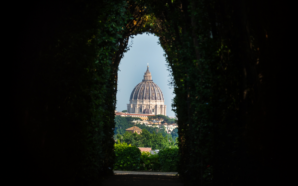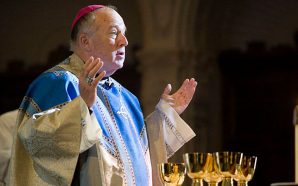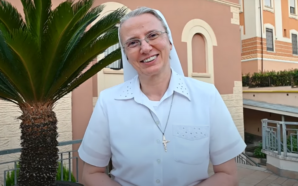What exactly will people on the outside know about the discussions that are to take place during the 16th Ordinary General Assembly of the Synod of Bishops, commonly called the Synod on the Future of the Church? The question remains unanswered even on eve of the October 4-29 gathering at the Vatican, which promises to be decisive for the Catholic Church.
And it must be in the minds of the 364 Synod Fathers and Mothers, who have spent these past three days leading up to tomorrow’s opening Mass on a spiritual retreat some 15 km outside of Rome.
The idea of holding the Synod debates behind closed doors has gained ground in recent weeks. But this runs counter to the notion – defended even by some key figures in the assembly – that there should be partial or even total openness in the discussions among the participants who, for nearly four weeks, will alternate between working groups and plenary sessions.
“It’s not the Truman Show”
Pope Francis was the one who came up with the idea of subjecting the Synod assembly to “secrecy”. But Paolo Ruffini, the prefect of the Dicastery for Communication, has refuted that word. A “space of silence” is what he prefers to call it.
“It’s not the Truman Show,” he insisted during a September 29 briefing. The reference, of course, was to Peter Weir’s satirical sci-fi film in which a man named Truman Burbank is unwittingly the subject of a reality show.
Throughout the month of October, Ruffini will be responsible for regularly reporting to journalists on the content of the discussions. The Italian layman has already made it clear that he is not certain he will have “enough material” to offer reports on a daily basis.
As La Croix recently revealed, Pope Francis is even considering whether to subject the participants to the pontifical secret. His aim is to guarantee a form of freedom of speech for the participants.
“He does not want to repeat what happened at the Synod on Amazonia,” said one of his regular visitors.
During that 2019 meeting, which brought bishops from the vast Amazon Region to the Vatican, some conservative groups came to Rome and protest against what they saw as the prelates’ promotion of religious syncretism. The protesters said a statue of the Virgin Mary used at the gathering was actually the pre-Columbian goddess of the Pachamama, representing Mother Earth.
“Silence is essential in the life of the Church”
“Silence is essential in the life of the Church,” said the pope during the ecumenical vigil in St. Peter’s Square on Saturday, in a clear message to the members of the Synod assembly. “Silence, in the ecclesial community, makes fraternal communication possible, where the Holy Spirit draws together points of view,” Francis continued.
Those close to him insist that the Jesuit pope’s fear is, above all, that by expressing themselves publicly, the synod participants will “set” their positions, and then be unable to change them during the discussions.
Indeed, this is what Synod participants have been told in recent weeks at preparatory meetings organized by the Vatican. During these meetings, the Synod Fathers and Mothers have been advised not to tell journalists anything about their “expectations”.
“Do you know I’m not allowed to talk to you,” said one of the participants with a smile, when asked about the issue.
But in the Vatican, the decision to be overly discreet has caused great perplexity, even among the Synod’s greatest promoters.
“Communication is going to be complicated. This cannot remain as it is,” worried one Roman Curia official.
“Secrecy risks reinforcing the opposition between American conservatives and German progressives. Both sides have money and journalists who are sympathetic to their cause, and they will tell the story they like, to the detriment of the more moderate,” said another.
“Why should we hide tensions that everyone knows very well exist?” wondered a Rome-based diplomat.
“We need to convince the pope”
In Rome, some of those in favor of greater openness are now hoping something changes during the Synod assembly’s initial moments.
“We need to convince the pope. It could be through the communication commission, whose members, drawn from the Synod, will be elected at the start of the assembly,” explained a source.
Others are also hoping that experienced cardinals, such as Christoph Schönborn of Vienna, a veteran of Roman synodal assemblies, will help change the pope’s mind.
Of course, Francis could publicly demand total closure tomorrow in his address to open the assembly. And if he does so, it will be much harder for advocates of greater transparency to make their case.
Thanks to La Croix International.








